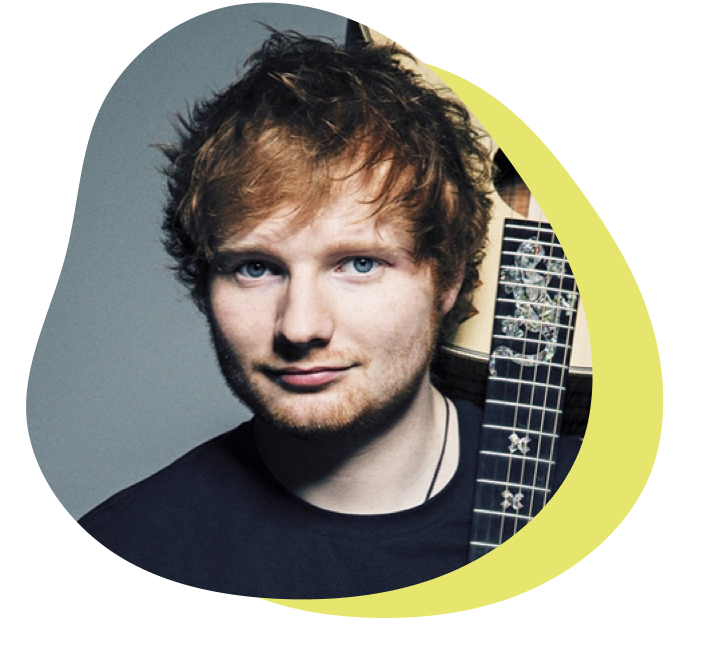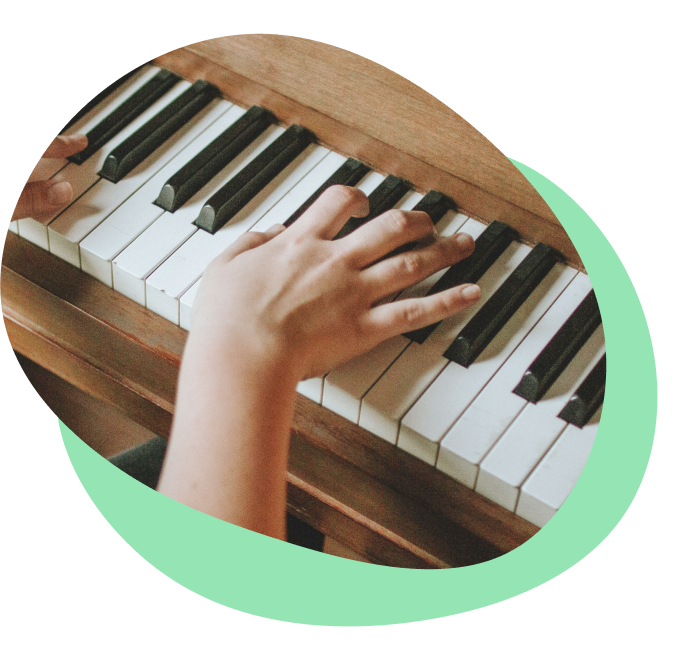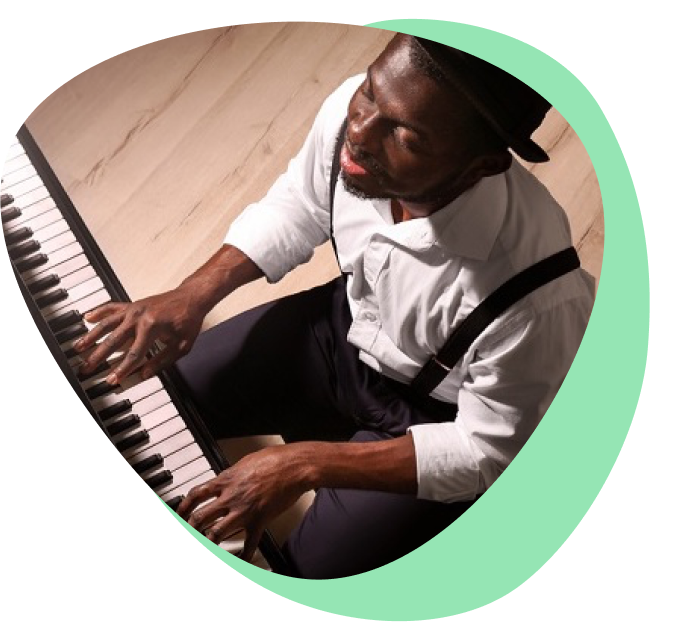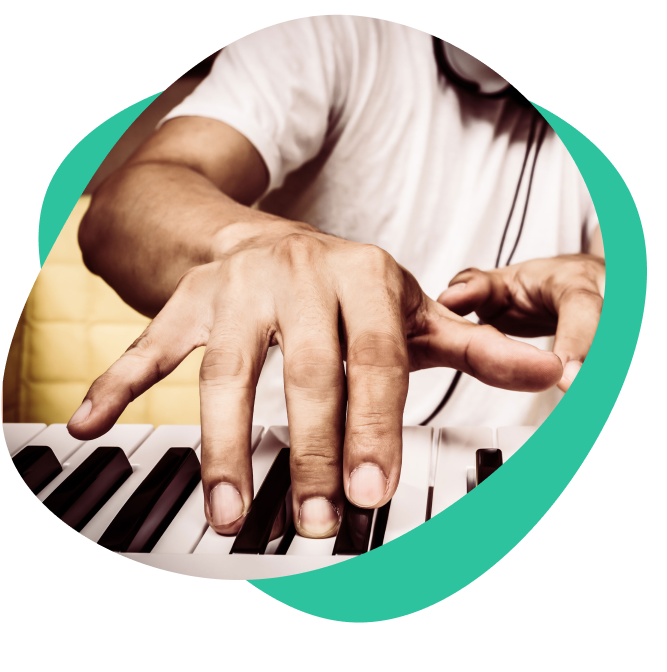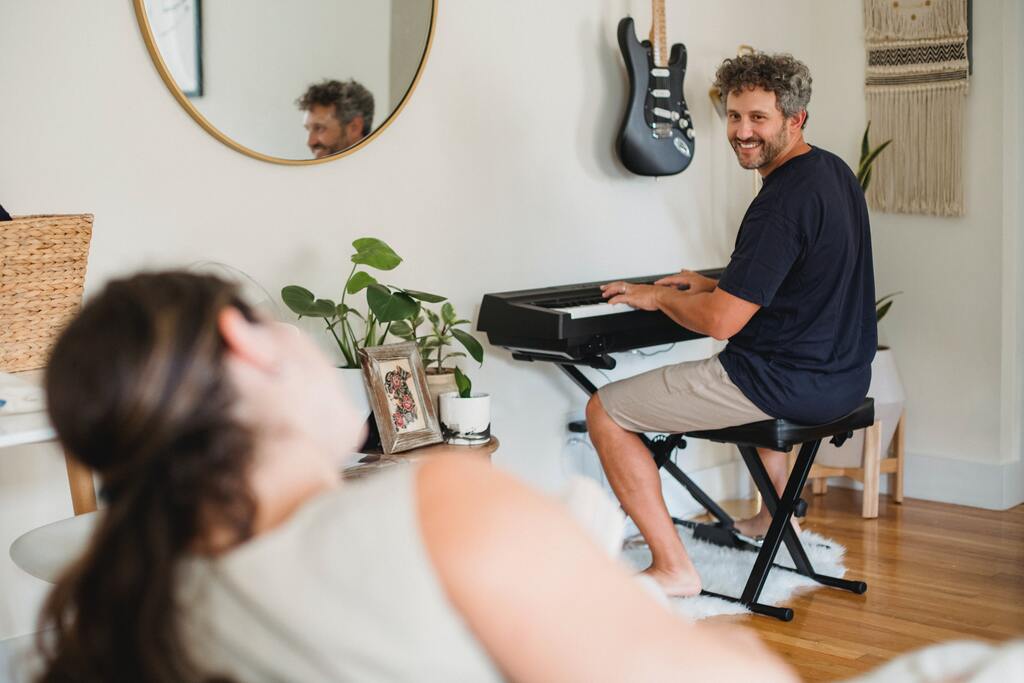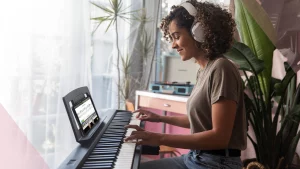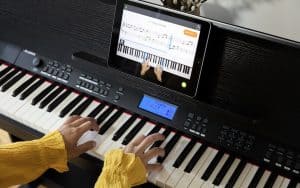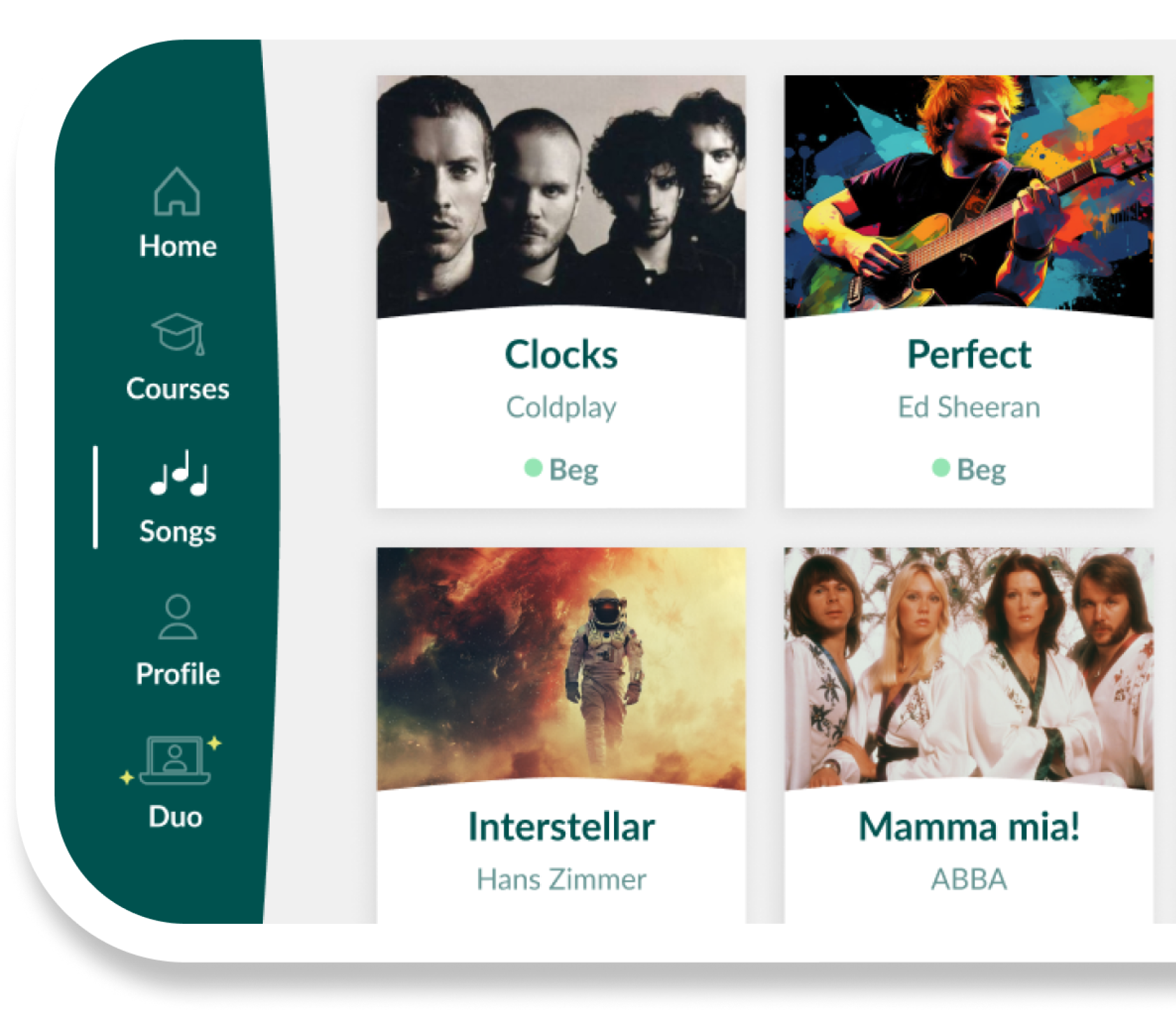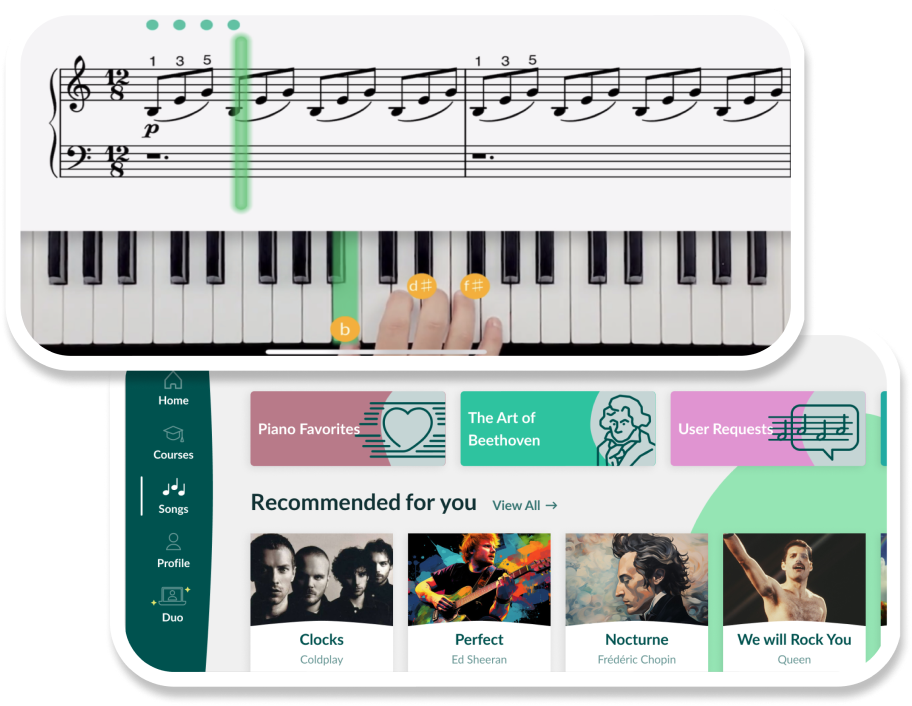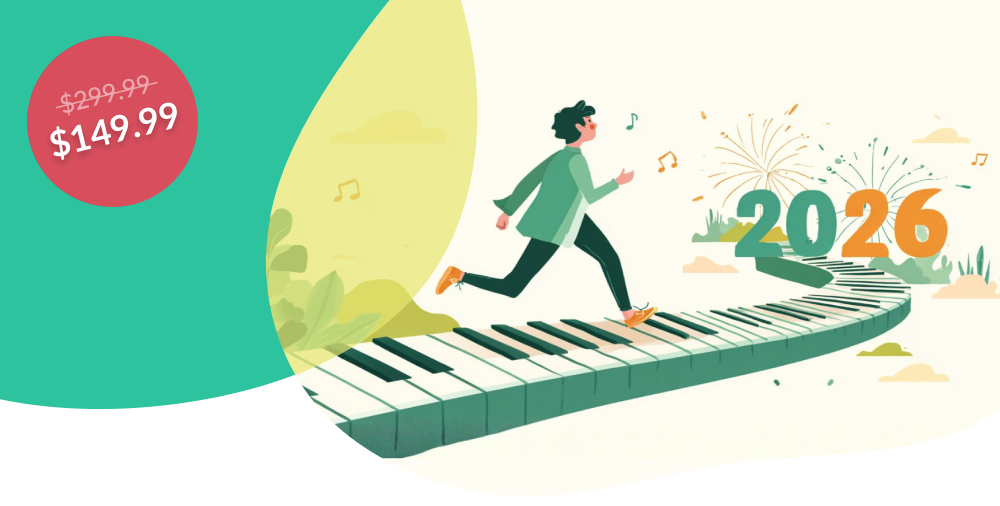Have you always wanted to learn to play the piano or are you thinking about enrolling yourself in piano lessons? The piano is an extremely beautiful and versatile instrument. Learning to play the piano should be done in a focused and methodical manner.
Having some idea of what to expect before starting piano lessons is extremely beneficial. You want to have a clear idea of the time commitment as well as a realistic impression of your own interest. If you are considering taking piano lessons for yourself, we have put together a list of things you should know and do before your first lesson.
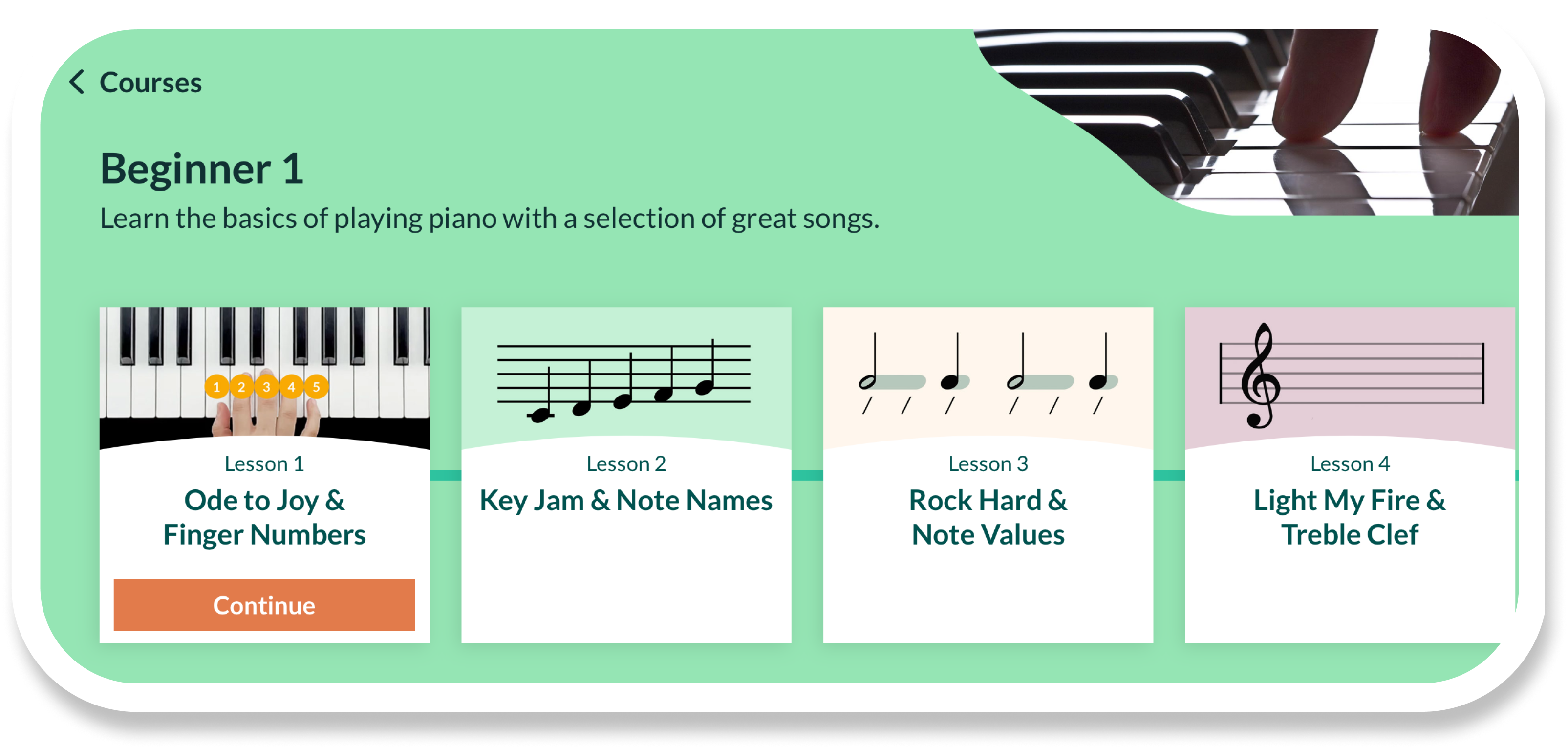
Make sure you have a reliable instrument
As previously stated, the piano is a very flexible instrument. The best way to learn piano is daily practice in addition to your piano lessons. As a result, owning an instrument at home is essential when starting piano lessons. You may not require a pricey grand piano at first, but an upright piano is well worth the investment. If you have little room in your home, investing in a high-quality digital piano is the best alternative.

Digital vs acoustic pianos
There are great digital and acoustic pianos available, each with its unique set of advantages. When compared to an acoustic piano, digital pianos are inexpensive and easy to move, and they take up very little room. These digital pianos are constantly in tune, and you can practice quietly with headphones.
Digital pianos do not really replicate the action of an acoustic piano. But a solid, hammer-action digital keyboard will help you to develop finger strength and dexterity for the times you get to play an acoustic piano.
Eventually, you should try to upgrade to an acoustic piano. Acoustic pianos are more responsive to your wrists and hands. However, they are also large and loud which can be a problem if you live in a tall apartment building! They can also be significantly more expensive than digital pianos and will require occasional tuning.
Stay honest with yourself
Learning to play the piano plainly necessitates a high level of effort and dedication. Make a definite commitment to your piano lessons. Try not to skip or take unnecessary long breaks between them. Make a vow to yourself that you will master your instrument in the shortest amount of time feasible!
Learning piano takes practice
Only with consistent and regular practice will you be able to get the essential dexterity for your fingers and hands. Set aside a specified period each day to practice so that your skill level rises rapidly. Remember, the higher your skill level, the better you will play and learn and the more you can access magic piano hacks.
Your overall sound will improve significantly the more you practice. When you start to see results from your piano practice, you will feel great and that feeling will motivate you to work even harder.
Learn how to set realistic goals
The secret to success is to set ambitious but achievable goals. Set a goal for yourself to perfect your instrument to a given skill level in a specific amount of time. Reaching your established goals at each level within the time limit you set for yourself will greatly raise your morale and urge you to set new goals.
Learn the keyboard backwards and forwards
Consider learning piano as though you were learning a new language. The notes correspond to the letters of the alphabet and the chords you play correspond to the words you can make with those letters. Spend some time getting to know your keyboard because you need to know the letters before you can read the words.
You will quickly realize there are a handful of repeating patterns on the instrument that you can use to orient yourself around. Learn the basics of the piano and memorize the names of the keys as quickly as you.
Practice piano notes at random from a hat and play it on the keyboard, or play a note and label it! When it comes to playing the piano, knowing the keys will make everything easier and more natural.
The musical alphabet begins with A and ends with G. To get the most out of your practice, you should know it both forward and backward.
Make sure you find music you care about
There is no reason why you should have to play boring and repetitive music as a beginning pianist. As you search for music that resonates with you, remember the black piano players whose contributions to music provide a rich repertoire for inspiration and learning. Find a chord chart for it online and teach it to yourself. Do not get bogged down in a boring beginners piano book just because you ‘think’ that is what all beginners do. Stay inspired and motivated with new music you enjoy playing and your piano skills will develop faster and faster.
Stay focused at practice
20 minutes of focused and diligent piano practice is infinitely more effective than 2 hours of spaced out noodling. Pay attention to your attention while you practice. Are you staring off into space? Are you feeling distracted by your phone or your thoughts or any other outside factor? Start with small chunks of practice time. It is much easier and probably more successful in the long run to focus for a shorter period of time in a high-quality manner than to spend an hour haphazardly practicing.
Your hands might not move properly right away
Do not be shocked if your hands do not move properly right away. It takes time and dedication to develop the dexterity needed to play the piano. Like any other muscle, you need to spend time training your hands to respond to your brain and emotions. After all, music is not just a purely physical activity. You need to train your hands to respond to your emotions and convey the appropriate feelings and moods in your music.
Ask Questions
As you start your journey with the piano, you will explore many new concepts and ideas. You will most likely be exploring an instrument you have never touched before. Ask more advanced players for their advice. Listen to interviews with accomplished pianists and seek out fellow musicians to engage with. Study the history of the piano.
Do not expect yourself to understand everything overnight. Ask questions and stay curious about the instrument and music in general.
The first step
Your first piano lesson is but the first step in what can become a lifelong journey of creative expression and joy. Learning to play an instrument is one of the most satisfying and fulfilling activities and helps deliver all the benefits of music education. The more you practice and develop, the more opportunities will come your way.
Maybe in 10 years you will be a piano teacher! Maybe you will be able to perform in other countries or maybe you just want to enjoy music for yourself and play for family and friends. Either way, the journey of music is a wonderful endeavor that everyone should experience. Congratulations on your decision to start piano lessons. Keep these ideas in mind before your first lessons and have a great time!
Do not forget, that you can alway call upon Skoove to help you out of piano jam. Whether you feel bored and stuck on the same old song or are just interested in some structured piano lessons that you can follow at your own pace, Skoove has something fun for everyone of any ability level!
Author of this blog post

Eddie Bond is a multi-instrumentalist performer, composer, and music instructor currently based in Seattle, Washington USA. He has performed extensively in the US, Canada, Argentina, and China, released over 40 albums, and has over a decade experience working with music students of all ages and ability levels.



